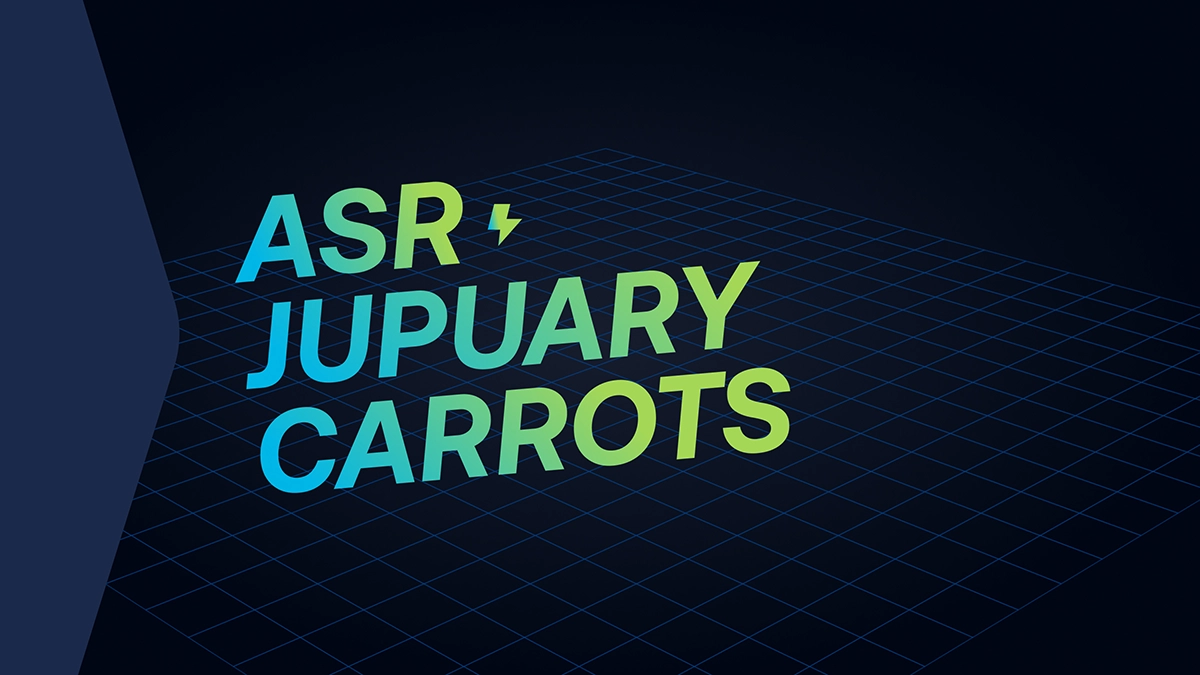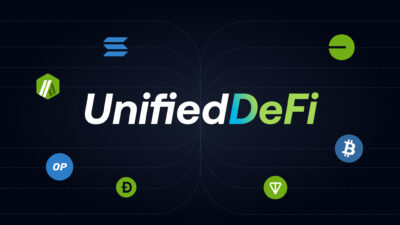Let me break it down in 3 key points
If you’re wondering whether it really makes sense to bet on Jupiter, the short answer is: yes — and for more than one reason.
Jupiter isn’t just a DEX aggregator on Solana: it’s an ecosystem that’s revolutionizing how we interact with DeFi. It’s built a super active community, a smart rewards system, and an approach that genuinely rewards participation.
In this article, I’ll explain the three main reasons why investing in — or simply using — Jupiter today can be a strategic move: the Active Stake Reward (ASR) mechanism, the annual $JUP airdrops known as Jupuary, and the so-called “Carrots” — real incentives designed to reward user engagement.
01. ASR
The Active Stake Reward (ASR) is an innovative incentive program designed for users who stake the $JUP token and actively participate in the governance of the Jupiter DAO. This system rewards stakers who contribute to collective decision-making by voting on governance proposals, periodically distributing additional rewards in $JUP and partner tokens.
Rewards are allocated based on the voting power expressed during proposals, calculated as the product of the amount of staked $JUP and the user’s level of active participation in the decision-making process.
How the ASR Program is Funded
The total budget allocated for each ASR cycle comes from two main sources:
- 50 million $JUP from LFG fees: a strategic allocation that Jupiter has specifically dedicated to reward programs in order to support community participation.
- 75% of the fees generated by Launchpad LFG launches: when new tokens are launched through the LFG Launchpad, a significant percentage of the fees collected in $JUP is allocated to the ASR program.
These funds make up the overall pool to be distributed during each ASR cycle. For every governance proposal voted on, a portion of the pool is allocated, proportionally based on the voting power involved.
Key Factors for Individual Rewards
Each user’s reward is determined by several key factors:
- Amount of $JUP staked during voting: the more you stake, the higher your potential reward.
- Number of votes the user participated in: consistent participation is rewarded.
- Total voting power per proposal: when overall participation is lower, active users receive proportionally higher rewards.
- Total available budget for the cycle, influenced by the funding mechanisms mentioned above.
Users who consistently participate in all proposals with a significant stake tend to earn an annualized return of around 11%, with historical peaks exceeding 20% for the most active community members.
Rewards are distributed quarterly and added directly to the user’s stake, enabling automatic compounding that maximizes long-term returns.
This mechanism is designed to:
• Promote active participation in governance decisions
• Reward long-term investors who believe in the project’s vision
• Create a merit-based system where the value generated is distributed to truly engaged users
The result is a more resilient and participatory DAO, where those who actively contribute gain both greater decision-making influence and higher financial rewards.
How the ASR Program Works
The ASR program distributes quarterly rewards using a structured pool made up of $JUP tokens and additional tokens from projects that have chosen to launch their cryptocurrencies through the Jupiter LFG platform. The allocation of rewards is tailored to the specific tokenomics of each partner project and the percentage they decide to allocate to active members of the Jupiter DAO.
For each governance cycle, a portion of the reward pool is distributed proportionally to participation. A strategic aspect of the mechanism is that the impact of your vote is inversely proportional to overall participation. In other words, when you vote in low-turnout proposals, the value of your contribution is significantly amplified, resulting in larger rewards.
There are two distinct reward distribution paths: • $JUP tokens are automatically reinvested into your stake, enabling a compounding system that maximizes exponential capital growth
• Partner project tokens are sent directly to your wallet and are available immediately
Note: Unstaking $JUP tokens requires a 30-day unlock period — a mechanism designed to incentivize long-term commitment to the platform.
Returns and Strategic Benefits
The historical evolution of ASR yields reveals an interesting trajectory: in its early cycles, the program delivered exceptional returns (around 22% in Q2 2024), followed by a gradual rebalancing as the base of active stakers grew.
Currently, a participant who maintains consistent activity can reasonably expect an average annualized return of 10–11%. Users who show particularly strong commitment — systematically participating in every vote — may potentially achieve premium returns estimated between 20–25% during 2025.
👉 The core value of ASR goes beyond immediate returns: this program incentivizes participatory governance, rewards ongoing engagement, and gradually strengthens your decision-making influence within the Jupiter ecosystem.
02. Jupuary
Jupuary is one of the core pillars of the Jupiter ecosystem — the annual distribution event for the governance token $JUP. The name “Jupuary” is a blend of JUP + January, as these special distributions take place every year in January. The stated goal is to “grow the pie”: distributing tokens to the user community and attracting new participants to the DAO, increasing decentralization and platform adoption.
Jupuary 2024 – The First Edition
The first Jupuary, held in January 2024, featured a massive airdrop of 1 billion $JUP tokens, worth around $1 billion (with the token priced at roughly $1). It was one of the largest airdrops in crypto history in terms of total value distributed.
Tokens were credited to approximately 1 million Solana addresses, following a highly inclusive approach: any user who had interacted with Jupiter by the end of 2023 was eligible — regardless of trading volume or usage frequency.
Anti-sybil measures (to prevent abuse by bots or multiple addresses) were relatively mild. This choice led to some dilution, with many addresses receiving only small amounts of JUP — sometimes referred to as “good cats” — with limited community impact.
Nevertheless, the first Jupuary laid the foundation for the Jupiter DAO, bringing many new holders and members into the project.
Jupuary 2025 – More Targeted and Qualified
The second edition distributed 700 million $JUP (roughly $575–616 million) to 2 million eligible wallets, becoming “the largest targeted airdrop in history” for qualified recipients.
The key difference from 2024 was the introduction of stricter eligibility criteria, designed to reward real, active users.
Jupiter implemented minimum activity thresholds and stronger anti-sybil measures, excluding micro-transactions under $5, stablecoin-to-stablecoin swaps, and suspicious trading patterns.
Users were divided into tiers based on trading volume, with increasing rewards for higher tiers. Around 2 million “real” addresses — dubbed “real cats” — received JUP, while many opportunistic addresses were excluded.
Looking Ahead: Jupuary 2026
A third edition has already been approved, scheduled for January 2026. The Jupiter team hinted that “the third Jupuary won’t look like the previous two,” suggesting possible changes to the format.
It’s likely that the experiences from 2024 and 2025 will shape new criteria, with an even stronger focus on genuine “power users.”
2026 is expected to mark the culmination of the initial token distribution phase, after which over half of the total $JUP supply will have been distributed to the community.
As of now, there are no concrete details about Jupuary 2026 — except for the expectation that it may focus more on long-term growth than just raw volume.
03. Carrots
Carrots are an innovative incentive mechanism introduced by Jupiter during the Jupuary 2025 airdrop. Instead of distributing all tokens at once, Jupiter strategically set aside 200 million $JUP (about 28% of the total airdrop) for a gradual, targeted distribution over time.
What exactly are Carrots?
Carrots are not a separate token or tradable asset: they work like virtual credits or bonus points that users accumulate, which entitle them to additional $JUP. The goal is clear — to reward active participation and incentivize positive behavior within the ecosystem.
“Good Cats” Program
A significant portion of the Carrots pool is dedicated to “Good Cats” — users who have actively contributed to the well-being of the community, such as:
- Developers who built tools or integrations for Jupiter
- Admins and moderators who maintain order in the communities
- Content creators and educators who publish guides and tutorials
- Ambassadors who helped spread Jupiter’s mission globally
It’s a thoughtful way to recognize community efforts, even when they don’t directly translate into measurable swap volume.
Claims and Special Cases
Another portion of the Carrots pool was wisely set aside to resolve airdrop errors — for example, users mistakenly flagged as sybil attackers. These users can file a claim and, if approved, receive a late airdrop funded from the Carrots reserve.
Future Initiatives
Carrots are also used to fund DAO-approved programs such as:
- Trading competitions
- Referral programs
- Liquidity provision incentives
- Bonuses for using new Jupiter products
Gradual Distribution
Carrots will be distributed progressively throughout 2025 (and possibly beyond), creating a powerful retention effect — users remain engaged in the ecosystem while awaiting extra rewards. Campaigns can be strategically timed around key events, like new feature launches.




